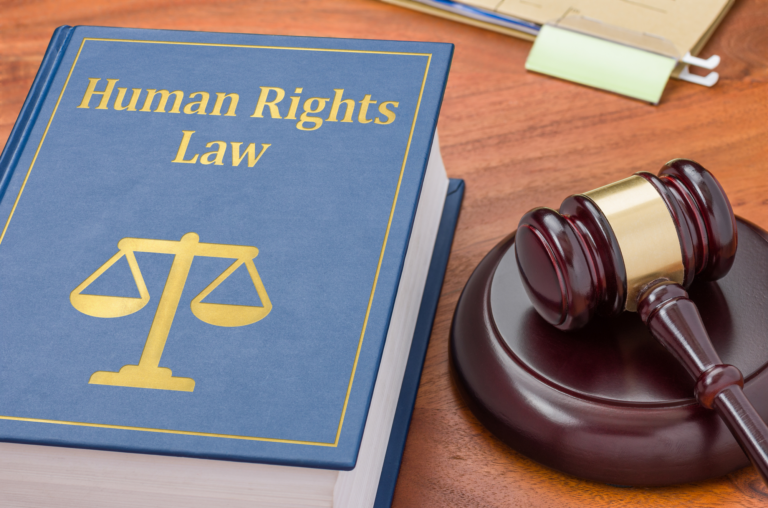Key Takeaways:
- Elder abuse refers to mistreatment or neglect that harms elderly individuals.
- Elder abuse can take the form of physical, emotional, sexual, or financial abuse, as well as neglect or abandonment.
- Hiring an elder abuse attorney is crucial to navigate the complex legal process and protect the rights of the elderly person.
- Top-rated elder abuse attorneys have a proven track record, access to valuable resources, and provide compassionate support.
- Qualities to look for in an elder abuse attorney include experience, compassion, and strong communication and negotiation skills.
- Finding the best elder abuse attorney requires research, seeking recommendations, and scheduling consultations.
- Initial consultations involve discussing the details of the case and exploring potential options and outcomes.
- Damages sought in an elder abuse lawsuit can include medical expenses, emotional distress, and punitive damages.
- The statutes of limitations for elder abuse cases vary depending on the jurisdiction and type of abuse.
What is Elder Abuse and Why You Need an Attorney
Elder abuse is a grave problem that affects our society. It involves any form of mistreatment or neglect that results in harm or loss for an elderly person. This can include physical, emotional, sexual, or financial abuse, as well as neglect or abandonment. Due to the vulnerable nature of elderly individuals, it is crucial to seek the help of an experienced elder abuse attorney when such cases arise.
Understanding the Different Forms of Elder Abuse
Before delving into the reasons why hiring an elder abuse attorney is essential, it is important to understand the various forms of elder abuse. Physical abuse involves the use of force or violence that causes injury or pain to an elderly person. Emotional abuse, on the other hand, refers to any actions or words that cause psychological distress or anxiety to the elderly. Sexual abuse involves any non-consensual sexual contact or exploitation of an elderly person. Financial abuse occurs when someone misuses or steals the assets or finances of an elderly individual. Lastly, neglect or abandonment refers to the failure to provide basic necessities, such as food, shelter, or medical care.
Why Hiring an Elder Abuse Attorney is Essential
When faced with an elder abuse case, hiring an attorney specializing in this area is crucial. Elder abuse cases can be complex, and navigating the legal process without proper guidance can be overwhelming. An elder abuse attorney will have a deep understanding of the laws and regulations regarding elder abuse and can guide you through the legal proceedings.
Additionally, an attorney will ensure that your loved one’s rights are protected and that they receive the compensation they deserve. They will gather evidence, interview witnesses, and build a strong case on behalf of the elderly person. An attorney will also handle communication with the opposing party, negotiate settlements, and represent your interests in court if necessary.
The Benefits of Working with a Top-Rated Elder Abuse Attorney
Choosing a top-rated elder abuse attorney can make a significant difference in the outcome of your case. These attorneys have a proven track record of success in handling elder abuse cases, and they possess the expertise and experience necessary to pursue justice for the elderly.
Working with a top-rated elder abuse attorney provides access to invaluable resources and networks. They have established relationships with medical professionals, forensic experts, and other specialists who can assist in building a strong case. They also have the skills to effectively negotiate with insurance companies and other parties involved, maximizing the potential for a favorable settlement.
Furthermore, top-rated elder abuse attorneys are known for their compassion and dedication to their clients. They understand the sensitive nature of these cases and provide the necessary emotional support to both the elderly person and their families.
Qualities to Look for in a Top-Rated Elder Abuse Attorney
When searching for a top-rated elder abuse attorney, there are several key qualities to consider:
Experience and Expertise in Elder Abuse Cases
An excellent elder abuse attorney should have extensive experience and specialized expertise in handling elder abuse cases. They should possess a deep understanding of the specific laws and regulations surrounding elder abuse and be able to apply this knowledge effectively to your case.
Look for an attorney who has a track record of success in obtaining favorable outcomes for their clients in elder abuse cases. They should be familiar with the tactics commonly employed by institutions and individuals in these cases and know how to counteract them.
Compassion and Empathy for Elderly Clients
Compassion and empathy are essential qualities for any attorney working in the field of elder abuse. It is crucial for the attorney to genuinely care about the well-being of the elderly person and understand the emotional toll that elder abuse can have on them.
During your initial consultation, pay attention to how the attorney listens and responds to your concerns. Their ability to demonstrate empathy and understanding can make a significant difference in the attorney-client relationship and the overall outcome of the case.
Strong Communication and Negotiation Skills
Effective communication and negotiation skills are essential for an elder abuse attorney. They should be able to clearly articulate your case, both in written and oral form. They should also be able to negotiate skillfully with insurance companies, opposing attorneys, and other parties involved in the case.
Not only should the attorney be an excellent communicator, but they should also have excellent listening skills. They should take the time to understand your specific needs and concerns and address them accordingly.
How to Find the Best Elder Abuse Attorney for Your Case
Finding the best elder abuse attorney for your case requires thorough research and evaluation. Here are some steps to help you find the right attorney:
Researching and Reviewing Local Attorneys
Start by researching local attorneys who specialize in elder abuse cases. Look for attorneys with strong reputations and positive client reviews. Read testimonials and case results to get a sense of their success rate in handling elder abuse cases.
Make a list of potential attorneys and gather as much information about them as possible. Consider factors such as their experience, expertise, and any awards or recognition they have received in the field of elder abuse law.
Seeking Recommendations and Referrals
Reach out to trusted friends, family members, or professionals in the legal field for recommendations and referrals. They may have had personal experiences or know someone who has dealt with elder abuse cases and can provide valuable insights.
When seeking recommendations, consider the source’s credibility and their specific experience with elder abuse cases. Ask for details about why they recommend a particular attorney and how the attorney handled their case.
Scheduling Consultations and Asking the Right Questions
Once you have narrowed down your list of potential elder abuse attorneys, schedule consultations to discuss your case in more detail. Many attorneys offer free initial consultations, which can provide an opportunity to assess their compatibility with your needs.
Come prepared with a list of questions to ask the attorney during the consultation. Inquire about their experience and success rate with elder abuse cases, their approach to handling such cases, and what strategies they would employ for your specific situation.
Ask about their fees and payment structure, ensuring that you understand their billing practices and any potential additional costs that may arise throughout the legal process.
Frequently Asked Questions about Elder Abuse Attorneys
What Should I Expect During an Initial Consultation?
During an initial consultation with an elder abuse attorney, you can expect to discuss the details of your case. The attorney will ask you questions to gather information and assess the strength of your case. They will also explain the legal process and outline the potential options and outcomes for your situation.
It is important to be prepared with any relevant documents or evidence that may support your case. This can include medical records, financial documents, or any other documentation related to the alleged elder abuse.
What Types of Damages Can I Seek in an Elder Abuse Lawsuit?
In an elder abuse lawsuit, you may be able to seek various types of damages. These can include compensation for medical expenses, pain and suffering, emotional distress, loss of enjoyment of life, and punitive damages in cases of extreme negligence or intentional harm.
Your attorney will assess the specific damages relevant to your case and guide you on the appropriate compensation to seek.
What are the Statutes of Limitations for Elder Abuse Cases?
The statutes of limitations for elder abuse cases can vary depending on the jurisdiction and the type of abuse involved. It is crucial to consult with an elder abuse attorney to understand the specific time limits for filing a lawsuit in your area.
By following the steps outlined in this guide and considering the qualities to look for in an elder abuse attorney, you can find the best representation for your case. Remember, the elderly deserve justice and protection, and a top-rated elder abuse attorney can help ensure they receive it.
FAQ
Question: What is elder abuse? Answer: Elder abuse refers to mistreatment or neglect that harms elderly individuals.
Question: What are the different forms of elder abuse? Answer: Elder abuse can take the form of physical, emotional, sexual, or financial abuse, as well as neglect or abandonment.
Question: Why is hiring an elder abuse attorney essential? Answer: Hiring an elder abuse attorney is crucial to navigate the complex legal process and protect the rights of the elderly person.
Question: What are the benefits of working with a top-rated elder abuse attorney? Answer: Top-rated elder abuse attorneys have a proven track record, access to valuable resources, and provide compassionate support.
Question: What qualities should I look for in an elder abuse attorney? Answer: Qualities to look for in an elder abuse attorney include experience, compassion, and strong communication and negotiation skills.
Question: How can I find the best elder abuse attorney for my case? Answer: Finding the best elder abuse attorney requires research, seeking recommendations, and scheduling consultations.
Question: What should I expect during an initial consultation with an elder abuse attorney? Answer: During an initial consultation, you can expect to discuss the details of your case and explore potential options and outcomes.
Question: What types of damages can I seek in an elder abuse lawsuit? Answer: Damages sought in an elder abuse lawsuit can include medical expenses, emotional distress, and punitive damages.
Question: What are the statutes of limitations for elder abuse cases? Answer: The statutes of limitations for elder abuse cases vary depending on the jurisdiction and type of abuse.
Useful Resources



















